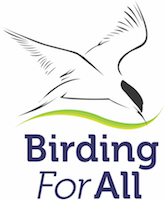GOB 106 Too little, too late
This article first appeared in Birdwatching Magazine August 2018
I make no apology for returning to the plastic war as it is simply the most pressing conservation concern everywhere on the planet.
A UK-wide bottle and can refund scheme has been given the go-ahead… just fifteen plastic sea-filled years since Germany did the same thing. So, given that by 2021 half a billion plastic bottles will be added to the world – that’s a million a minute – there will be countless more millions of bottles at large in the UK by the time we get our collective backsides out of a sling! According to at least one expert the world’s plastic binge is ‘as dangerous as climate change’!
Congratulations to Aldi for committing to having only recyclable, re-usable or compostable packaging by 2022. I’ve yet to hear even the most mildly conservationist commitment from the big five supermarkets. Why in the name of Gaia are four two-litre bottles of water or pop packed together in plastic wrapping which just make them too heavy to lift… did we demand this? I don’t think so!
Scientists have accidentally discovered a plastic eating microbe on a Japanese land-fill site. It breaks down plastic into its original components so the scientists hope to develop it in such a way that clear plastic can be digested and reconstituted into more clear plastic. It’s just going to encourage the continuing use of single-use plastic. Is this a brilliant breakthrough? I don’t think so!
Currently by accident or design trillions of microparticles of plastic are being generated. Birds, humans and all eat drink and breathe in these nano-particles and fibres, which may get into the bloodstream, lung tissue and even crop or breast milk and lodge in our lungs and guts. We know lead emissions interfered with migration mechanisms, what is plastic interfering with or harming? Is the banning of micro-beads enough? I don’t think so!
Re-cycling, however laudable is not enough. We have to radically reduce the amount of plastic already in the world and stop adding to it. Paper bags were the only container my parents bought fruit and veg in after WW2. Wholesalers used cardboard boxes and flimsy wooden crates, tin drums and glass bottles. Every glass bottle could not just be ‘re-cycled’ they were washed and re-used over and over. Paper bags and cardboard boxes could be re-pulped to make new cardboard boxes and paper sacks.
My first summer job as a student was as a bin man… at the time when heavy metal bins were being replaced with paper sacks. Why can’t we go back to wheeled containers that are NOT lined with plastic. Why can’t we wash the internal liner of our pedal bins as we once did. We want to be one step away from all ‘dirt’ as we obsess over hygiene thinking a bio-degradable bag is the answer when washing a bin, then washing our hands works as well without further polluting.
I hope you are not eating breakfast, as I turn to the latest ‘fatberg’ to block London’s sewers. Two football pitches long and weighing as much as sixteen London busses, it is mostly comprised of cooking fat. Deep inside bacteria flourish which are impervious to antibiotics. Why do the ‘bergs’ form? Because of flushed and discarded plastic which begins the blockage process. Moreover, it turns out that the berg has massively high concentrations of the drugs used by keep-fit nuts! Where does all this end up? In our seas to keep the plastic company.
Half-hearted and timid approaches are too little and too late. We must ban single use plastic now!





